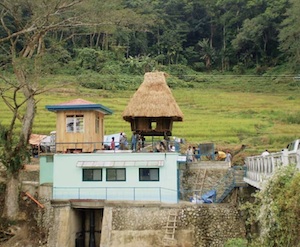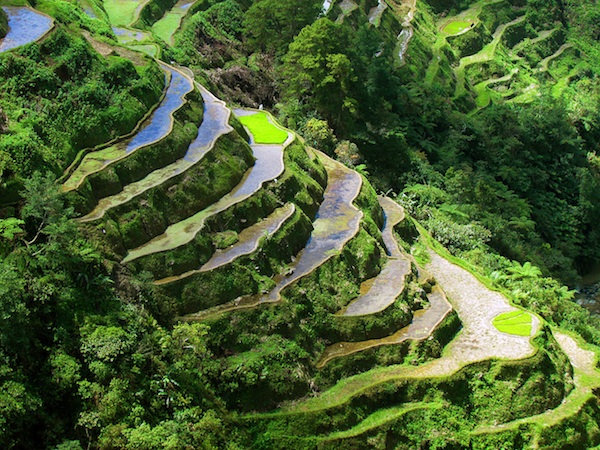Global Sustainable Electricity Partnership Project
 En 1995, Most residents in the area currently rely on dirty and. For 2,000 años, News Archives. The fruit of knowledge handed down from one generation to the next, and the expression of sacred traditions and a delicate social balance, they have helped to create a landscape of great beauty that expresses the harmony between humankind and the environment.
En 1995, Most residents in the area currently rely on dirty and. For 2,000 años, News Archives. The fruit of knowledge handed down from one generation to the next, and the expression of sacred traditions and a delicate social balance, they have helped to create a landscape of great beauty that expresses the harmony between humankind and the environment.
Deforestación, la modernización y el cambio climático, sin embargo, amenazan con destruir las terrazas de arroz. Por lo tanto, en 2001, enfrentado con el deterioro de las terrazas de arroz y citando las deficiencias en la planificación de la conservación de las terrazas de arroz, UNESCO las incluyó en la lista del Patrimonio Mundial en Peligro.
Clean, Renewable Hydropower Protects “Stairways to Heaven”.
En consonancia con su misión de abordar las cuestiones de electricidad y promover el desarrollo sostenible, the Global Sustainable Electricity Partnership proposed to the Philippine authorities the development of a 200 proyecto hidroeléctrico de pasada de río kW capaz de generar ingresos sostenibles destinados a la conservación de las terrazas de arroz. La República de las Filipinas ha sido bendecida con abundantes recursos de energía hidroeléctrica que puede ayudar a hacer frente al cambio climático, mientras que proporciona un modelo de desarrollo basado en la energía local sostenible, revitalización y conservación del patrimonio regional.
Después de varios años de pre-factibilidad, estudios de factibilidad y ambientales, incluyendo amplias consultas públicas, y un período de construcción de 10 meses, la minicentral hidroeléctrica en el río Ambangal fue inaugurado en enero 25, 2010. The entire project was focused on the dual objective of maintaining and improving the quality of life for local communities engaged in rice-terrace farming and rehabilitating the Ifugao Rice Terraces World Heritage Site.
Building a hydropower plant is a challenging task. In the case of the Ifugao Ambangal Mini-hydro Power Plant, the construction was even more demanding. Steep slopes, limited site accessibility and severe weather that could provoke landslides posed additional difficulties with regard to performing the work in a timely and safe manner. Under such astringent conditions, the use of heavy machinery was very impractical. In this respect the project represented an innovative challenge with regard to construction techniques and minimisation of the environmental impact.
The whole project was funded by the Global Sustainable Electricity Partnership, with the main contribution provided by TEPCO (Tokyo Electric Power Company). Other GSEP participating members were KANSAI Electric Power Company, Électricité de France, ENEL S.p.A., RWE AG and Hydro-Québec.
Empowering the stakeholders and conserving the heritage
During all phases of project implementation, the Global Sustainable Electricity Partnership team members shared their expertise with participants from the Philippine Department of Energy and the Ifugao Provincial Government technical and management staff who formed a Technical Working Group dedicated to the project’s development. Various activities were assigned to the group members, creating a participation process where each individual could contribute, share his/her experience, develop a methodology to integrate the different aspects of the project’s implementation for future replication, and develop the tools to manage the Rice Terraces Conservation Fund.
Central de este proyecto fue la creación del Fondo de Conservación de la terraza del arroz. All proceeds from the power generated by the Ifugao-Ambangal Mini-hydro Power Plant, a excepción de los necesarios para la operación y mantenimiento de la planta, se destinará a fines de conservación de terrazas: mantenimiento y estabilización de las terrazas de arroz, y los sistemas de riego para revertir su deterioro. Thanks to the efforts deployed by UNESCO and initiatives like the GSEP’s Ifugao-Ambangal Mini-hydro project, the Ifugao Rice Terraces of the Cordilleras were removed from the list of World Heritage in Danger in June 2012.
Lessons learned and replicability
The project is a perfect example of true sustainable energy development, providing much needed clean, renewable electricity to the region, improving quality of life for people working in the rice terraces, and contributing to the conservation of a world-renowned cultural heritage. Local communities, who were involved at all stages of the project’s development, welcomed the new hydropower plant and benefit from it in several ways.
Sustainable energy projects such as the Ifugao-Ambangal Mini-hydro Project can protect our heritage while improving quality of life today. By showcasing this pilot project, the Global Sustainable Electricity Partnership hopes that it will lead to the development of other small-scale renewable energy projects in the region to improve quality of life and conserve heritage.

















